
Employee Relations is the general term used for defining the relationship between employers and employees. Employers know that healthy employee relations build a positive workplace culture where employees are actively engaged and involved in the workplace, contributing to improved business outcomes. On the flip side, poor employee relations will lead to increased absenteeism or presenteeism, poor retention and a toxic culture, negatively affecting the potential for business outcomes.
At its core, successful employee relations rely on effective workplace engagement that recognises the importance of individual and collective strategies incorporating two-way communication and consultation arrangements.
Employers boasting healthy employee relations operate in partnership with their employees and regularly test their approach through the various mechanisms they employ to build positive relations in the workplace, including:
Managing and implementing employee relations strategies requires industrial and employee relations skills and broad human resources management capabilities. HBA Consulting’s highly experienced team has decades of hands-on experience across all three components, resulting in a comprehensive and holistic approach to employee relations strategies and issue resolution.
Typical requests for advice and assistance with Employee Relations matters include:

Industrial Relations refers to the regulatory framework that applies to workplace entitlements, including setting minimum employment terms and conditions, providing protections for workers against inappropriate behaviour and unfair or unlawful practices and establishing an independent body for settling disputes relating to these matters. Industrial relations also refers to the framework for collective bargaining and employer relations with registered employee organisations (unions).
A sound industrial relations management approach is a crucial building block for successful workplace relations as it minimises disputation and helps build trust across the workforce.
HBA Consulting seeks to simplify the industrial landscape as it applies to individual businesses, drawing on our expertise and understanding of the legislative framework and the practicalities of how that translates into implementation across the workplace. Consequently, HBA Consulting has provided practical and pragmatic industrial relations solutions to clients across the public and private sectors.
We also have found that clients return to the HBA Consulting team for industrial relations advice and assistance because we are responsive to their needs, tailoring solutions at the strategic and operational levels while addressing the immediate concern according to the existing industrial framework.
We support our clients with their industrial relations needs across the following key areas:
Our highly experienced consultants have worked as HR and IR practitioners in senior roles in the private and public sectors before joining HBA Consulting. This means that they understand how the advice and assistance they give can be implemented in the workplace and what the employer needs to consider to realise the best possible outcome while managing any associated risks.
The management of employee performance is an integral part of the role and responsibilities of every line manager and supervisor. The ability to establish, communicate, review and provide constructive and honest feedback to employees about how they are performing against requirements, where performance is meeting or exceeding expectations and where it can be improved is a fundamental management function critical to sustaining and enhancing organisational performance over time. It’s also essential for building good morale among employees.
However, employers can find performance management challenging to implement effectively across the organisation as a measurable link between business objectives and individual achievement is often overlooked or unclear.
For more than twenty years, HBA Consulting has been providing advice and assistance to organisations concerning the establishment, implementation and review of performance management systems from a range of perspectives, including:
Managing underperformance is often a subset of the performance management process. From our experience, including underperformance mechanisms in performance management is suboptimal as each respective strategy, while linked, has an entirely different purpose and approach.
For most employees, the underperformance process will not factor into their regular appraisal and feedback processes. However, where there is no clear distinction between the two processes, employees will often view performance management negatively—undermining the benefits of performance management practices.
An underperformance process is initiated when an employee has failed to reach the required performance standard. This results in a focussed, timebound approach of review and feedback that can also be supported by dedicated support to the employee, with the overall goal of getting the employee operating at the required standard.
Managing underperformance successfully requires the manager/supervisor and the employee to have buy-in and be committed to the process. They also must have clarity about roles, responsibilities, processes and potential implications. This can often be achieved by establishing the following:
The highly experienced HBA Consulting team have had decades of ‘hands-on’ experience in managing underperformance issues both as senior HR managers and in working with clients on the best way to approach what is often a challenging process for both the manager and the employee.
Sometimes, even the best-run organisations can find themselves with an unhappy or aggrieved employee. When this happens, it can be difficult to know the best way to address the matter when the logical resolution points, such as the line manager/supervisor or the Human Resources team may have been involved in:
In such situations, HBA Consulting can provide an independent, highly experienced consultant who can:
As with workplace grievances, there are times when even the best-run organisations can find themselves with an unhappy or aggrieved employee who initiates a dispute under the applicable industrial arrangements or employment contract.
Should this type of situation arise, time is usually of the essence as the matters can be referred to external bodies such as the Fair Work Commission. HBA Consulting can provide specialist HR and IR advice to assist in these situations to assist organisations that may not be familiar with the processes involved or who may not have the internal capability available to respond quickly and appropriately.
When a dispute is notified to the employer, HBA Consulting can assist in the following ways:
We have an experienced industrial lawyer as part of the HBA Consulting team, who works in partnership with our HR and IR consultants to lead, guide and support employers through these processes.
Preparation for and management of an Agreement making process is a time-consuming and high-profile human resource management challenge for any organisation.
HBA Consulting offers specialist assistance to supplement an organisation’s existing HR and Industrial Relations capabilities, partnering with the business to ensure the best possible outcome as they navigate the bargaining process. Over the past twenty years, HBA Consulting has provided advice and assistance in a range of ways for more than 330 Enterprise Agreements across the public, private and not-for-profit sectors.
We work with organisations and their Executive and HR teams to establish a robust and fit-for-purpose enterprise bargaining process that addresses each of the eight critical steps of the process, as summarised below. We can do as little, or as much of the work at each stage as the organisation and its internal capability and workload require – meaning that resourcing and costs can be tailored to meet each employer’s needs and budget.
The Key Agreement Making Stages that HBA Consulting can assist with are:
There are significant benefits in providing training to those involved in the bargaining process, including:
Aside from the benefit of bringing the group together before the bargaining commences, where they can meet and learn a bit about each other, the training will establish a clear and shared understanding of the following:
Our practical, hands-on, plain English training programs are tailored to the needs of each client and run from 2 hours to a full day, dependent upon the outcomes sought from the program by the client.
Redundancy is not something businesses desire, but often change is inevitable, and sometimes, the effect of change in a business can impact workforce structures, skill requirements or affordability.
Careful analysis of the change, the drivers of the change, and where the impacts will be felt is essential before decisions on redundancy can be considered. It is also vital to properly incorporate the governing industrial framework into the decision-making process.
Some aspects to consider include the following:
Once the problem and scope are clear, consider possible options and risks to managing the required organisational shape or size changes. If the answer is that these considerations will not resolve the staffing dilemma, then a workplace redundancy management program may be necessary.
Employers often implement a ‘hands up’ voluntary redundancy process when reducing staff numbers. There are several reasons for this, including a belief that it is the least confrontational and expedient approach. However, such an approach almost always results in fixing one problem (i.e. delivering reduced overall staff numbers and costs) but often results in a range of longer-term, difficult-to-manage issues such as:
HBA Consulting has advised private and public-sector organisations on workplace redundancy management processes and programs by providing practical, professional and experienced HR and IR advice and assistance. At difficult times like redundancy, it is helpful to have assistance that supplements existing capability in an area that isn’t often available internally to an organisation.
29 Somerville,
St SPENCE ACT 2615
PH : 02 6247 4490